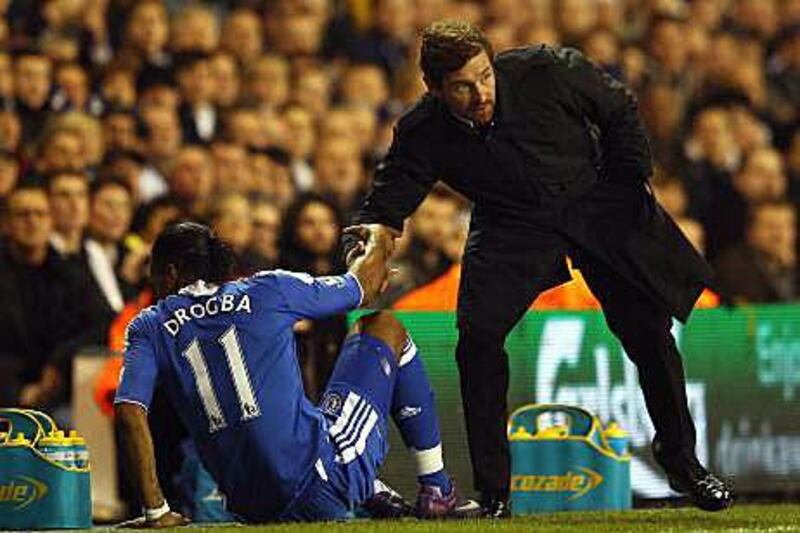It is not just the unprecedented sight of Manchester City stationed atop on Christmas Day. Nor Sir Alex Ferguson's forced, at times angry, defence of the youthful Englishmen he has banked on returning Manchester United there.
Throughout the opening half of this Premier League campaign there has been a persistent sense of regime change.
A two-way street scrap between City and United is novel in itself. All the more so for Roberto Mancini's unexpected calculation that the English title is best pursued on the front foot instead of warily defending.
Even if the title remains at Old Trafford when all wraps up in five months, it could be retained by a team built with Phil Jones, Chris Smalling and Danny Welbeck. For Ferguson, young men who will "be the foundation of the club for years".
Down in London, the closest competitors play in neither red nor blue. Tottenham Hotspur have made it to the festive season in their highest position since 1984 and, at least, still have the self-confidence to talk about overhauling the Manchester duo.
Arsene Wenger publicly recognised the Premier League was beyond Arsenal a week ago; Andre Villas-Boas refocused Chelsea's objectives earlier still.
Both clubs are dealing with an internal changing of the guard. Arsenal's has been uncharacteristically enforced - Wenger bullied into selling Samir Nasri to City when the French creator was playing the best football of his career, and in the same summer he'd acceded to Cesc Fabregas' long-held desire to return to Barcelona.
With a manager so accustomed to handling change, the transition is unlikely to be fatal. Yet its cost can be tallied in dropped points that threaten Champions League qualification.
Chelsea's reformation has been the most traumatic. Partly because it is the most dramatic, partly because it has been so poorly conceived. Villas-Boas was re-employed on a promise of converting the club's pragmatic power football into Barcelona's deadly beauty inside three seasons.
Both owner and new manager knew that the core of Chelsea's first team were unsuited to the project, yet no grand names were moved on at its inception.
Instead Villas-Boas has engaged in a kind of civil war, pushing what he insists on labelling his "philosophy" upon some resistant individuals. Frank Lampard, whom the manager considers dangerously obsessed with goal-scoring, has been sidelined for the first time in a storied career.
Didier Drogba was first told that Villas-Boas considered him a diminished force then coaxed back to action when the Portuguese realised the desperate degree of Fernando Torres' decline.
Petr Cech has been forced to listen to his appointed successor, Thibaut Courtois, announcing the goalkeeper's planned obsolescence. John Terry has been left tactically exposed, clinging to the lifebelt of supporter loyalty.
Terry personifies the season's turbulence. The long-term decline in his athletic ability has become common parlance in a manner rarely experienced by a standing England captain. Yet what truly threatens to wrest the defender's grip from two of the game's most prestigious positions is his predilection for misconduct.
The 31 year old will plead innocent when he is tried for a "racially aggravated public order offence" in February. There are some within the game who feel neither Chelsea nor the Football Association would be upset at the scope for disciplinary sanction a judicial verdict of guilt would offer.
The eight-match suspension the FA handed Luis Suarez for directing racist language against Patrice Evra ably demonstrated the governing body's intolerance.
Other established names face dangerously uncertain futures. The same month Terry goes to court, Harry Redknapp could receive a jail sentence should the Tottenham manager be found guilty of evading tax in a previous position at Portsmouth.
At the bottom, the familiar names of Bolton Wanderers and Blackburn Rovers are threatened with relegation.
Both Northwest clubs carry debts so significant, they seem to have over-reached themselves to sustain access to the Premier League's television revenue. Intriguingly, their places are threatened by Norwich and Swansea City - teams from regions often entirely unrepresented in the division, but intent on sustaining it with an attitude of economy.
Not every change is for the worst.





